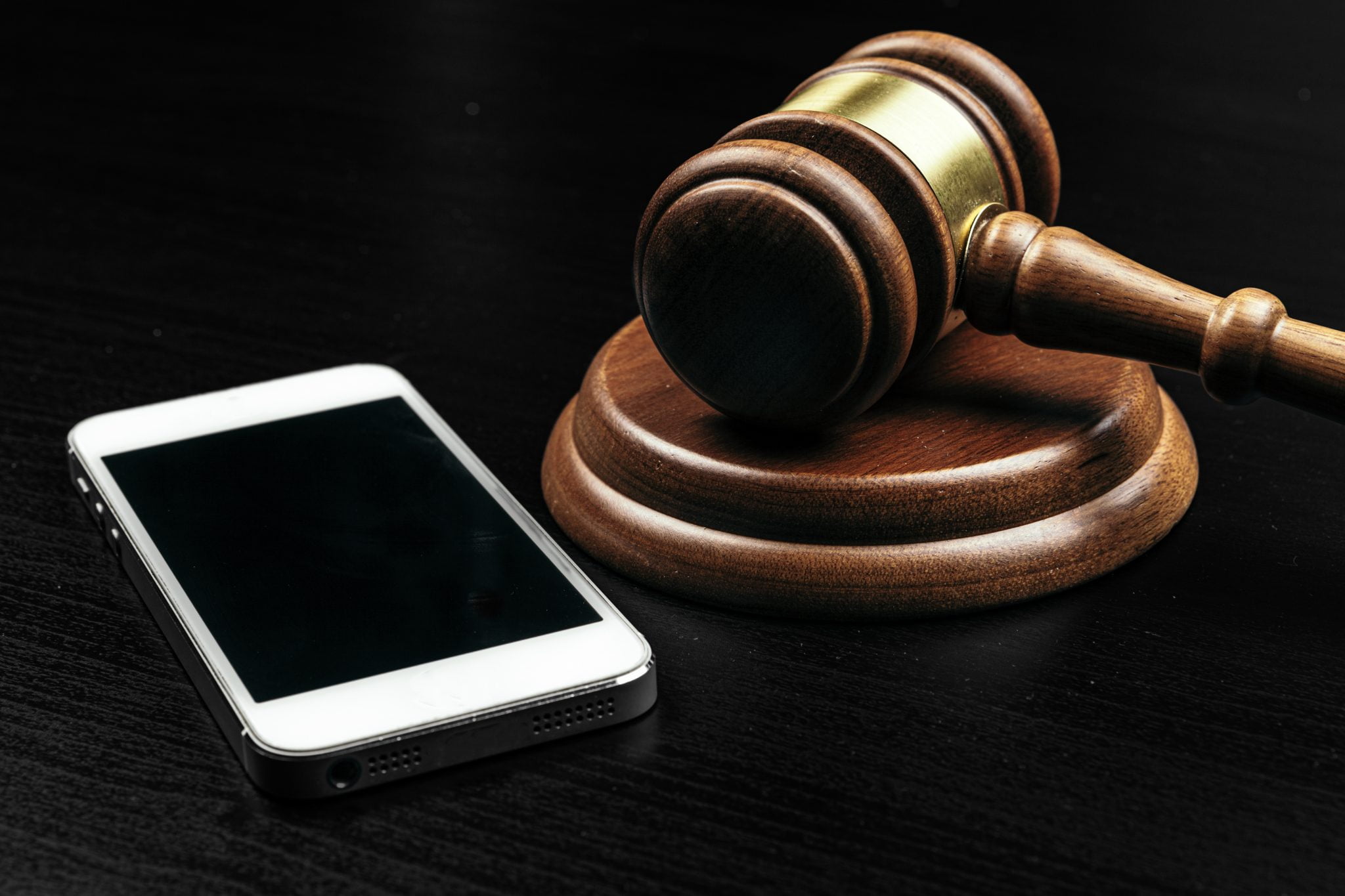Institutions, both in the private and public sectors, have undergone legal hurdles every now and then. It is a common practice to collect evidence from people that are alleged in court cases. And, electronic conversations between people involved in such cases are sometimes the most important of all pieces of evidence that could pin the allegation on the culprits.
The exchange of relevant information and evidence in a court case is termed discovery. In the past, companies used to exchange hundreds of boxes containing thousands of paper documents, as part of a discovery request. When industries geared up for the digital era, all business-related documents acquired a digital format, called Electronically Stored Information (ESI). Thus, the discovery of ESI became electronic discovery (eDiscovery) and long gone are the days of paper documents.
As ESI is critical in many court cases that involve the use of mobile devices for communication, eDiscovery requests have become quite common now. The eDiscovery requests in an investigation usually involve an extensive collection of resources from multiple channels.
For several years, the only electronic conversation that was required to be produced before a court for an eDiscovery request was emails. Whether you use your computer or a mobile phone, emails sent and received are stored in the company servers. Hence, there was no need to access the mobile phones of people involved in a legal case, for an eDiscovery request.
But times have changed and where conversations were once revolved around emails alone have shifted to other channels too. The increase in the use of smartphones has paved the way for newer communication channels. Messages sent via mobile instant messaging (IM) applications like WhatsApp, WeChat, Telegram, and Signal dominate all other traditional ways of communication. Features like disappearing messages provided by popular mobile messaging applications make things even more complicated, as relevant messages are automatically deleted after a preset time.
Responding to eDiscovery requests has now become a challenge due to multiple communication channels being used in a business. Since personal devices are also being used these days, the requested data may not be present with the organization. Furthermore, as text messages come under ESI, they are also subject to the same discovery standards. Hence, in the event of a court case, the organization is bound to provide all conversations, irrespective of the communication channel where the conversation took place.
The use of mobile devices for business communication has caused confusion for several organizations, during legal proceedings. Many people have deleted their text messages to destroy evidence against them in court cases. Let us look at a few examples to understand the impact of mobile communication in court cases.
This year, an ethics committee report found that the Mayor of Seattle Ms. Jenny Durkan’s phone’s text message retention period was set to 30 days. As a result of this, the Mayor’s text messages from Aug 28, 2019, to June 25, 2020, were automatically deleted. The deleted text messages were considered as potential evidence in a federal lawsuit against the city of Seattle. Hence, the deletion of the Mayor’s text messages becomes a political turmoil for the Seattle City Hall. Text messages of several officials of the Seattle Police Department and Fire Department were also found to be deleted.
In the Lawrence v. Rocktenn CP LLC case, a request made by the defendant for the production of the plaintiff’s text messages, emails, photographs, and videos was questioned by the plaintiff. The plaintiff argued that the request was an invasion of his right to privacy. The court observed that the request made by the defendant was relevant to this case. Hence, the court granted the defendant’s motion to compel.
The Mark Myers v. Amy Fecher case, filed by Mark Myers (former Department of Information Systems Director), is aimed to block the release of text messages between Myers and Jane Doe (who was the representative of a vendor, which raised questions a couple of years back regarding three state projects with that vendor, worth of $8.2 million), which was requested under the Arkansas Freedom of Information Act. Myers sued the Department of Transformation and Shared Services secretary. But the court observed that the release of Myers’ text messages with Jane Doe was necessary for clarification. The judge quoted, “The messages reflect the performance or lack of performance of official functions because they inextricably intertwine personal and public-business matters such that there is a substantial nexus between the two.”
Spoliation sanctions were granted by the court on the plaintiff’s request in Nuvasive, Inc. v. Kormanis case. The court viewed that the defendant had failed to take reasonable steps to preserve relevant text messages.
In another spoliation request made by DriveTime Car Sales Company, LLC against Bryan Pettigrew, the court denied the plaintiff’s request. The court viewed that even though the defendant failed to preserve relevant text messages, the defendant’s actions did not meet the burden of demonstrating “intent to deprive” under FRCP 37(e)(2).
The plaintiffs in Lawson v. Love’s Travel Stops & County Stores, Inc. case requested the complete forensic image of the company phones of more than 100 employees for capturing text messages that the employees may have sent. The court declined the plaintiff’s request, stating that a more narrowly tailored request, showing the relevance must be made by the plaintiffs.
After the Deepwater Horizon oil spill in 2010, a former senior drilling engineer of British Petroleum Company PLC (BP), Kurt Mix was convicted in 2013 for deleting relevant text messages regarding the oil spill incident. A few of these deleted messages were forensically recovered and was found that the flow rate estimate given by BP in public was three times lesser than the actual number.
Relativity, Everlaw, Logikcull, DISCO, and exterro are some of the popular software that organizations use for eDiscovery. These tools enable multiple users to collect and analyze data from multiple sources and make the legal process smoother. After the review, the software automatically produces relevant information required for the legal proceeding. Legal professionals can analyze this data and frame case strategies and understand the real picture behind the case.
The benefit of using such tools is that they save millions of dollars in legal fees and reduces the time for review by merely a number of days, rather than several weeks or months.
All these cases point to the need for archiving mobile communication. It is impractical to fish out years-long of messages during a court case. Instead, if all communication, especially mobile communication, is archived, then organizations can respond to eDiscovery requests swiftly and efficiently.
In most of the cases seen above parties either fail to make their point during their spoliation requests, or the scope of these requests will be too large. If a mobile archiving solution is incorporated into the business, companies can specifically produce the requested records in a timely manner.
Text messages are an important part of eDiscovery in court cases. This is an area where companies and government institutions cannot take things lightly. Not only text messages, but communication through mobile messaging applications has also increased. Mobile instant messaging (IM) applications like WhatsApp, WeChat, Telegram, and Signal have increased considerably. Officials in the government sector, as well as professionals in the financial industry, find these apps effective for faster communication.
Taking screenshots of text messages is definitely not a practical way. The metadata associated with the conversation is equally important as the message itself. The metadata usually contains the name of the sender and receiver, time, and other details.
Hence, the need for properly recording and archiving the conversations through mobile messaging channels is ever increasing. Organizations must adopt the use of solutions that enables them to capture mobile SMS, capture mobile calls, perform WhatsApp archiving, and also WeChat archiving. The growing use of Telegram and Signal in business communication is a reminder of the need for Telegram archiving and Signal archiving.
Using a message archiving solution like the TeleMessage Mobile Archiver helps regulated firms archive all business conversations made by their employees, including the metadata of the conversations. The recorded conversations can be retrieved and produced easily, in the event of a regulatory audit, or even a court case.
Employees must be educated on the need for text messaging compliance to avoid regulatory non-compliance or legal proceedings.
About TeleMessage
TeleMessage captures and retains mobile content, including mobile SMS messages, voice calls, and WeChat and WhatsApp conversations from corporate or BYOD mobile phones to ensure compliance with various data protection regulations. The messages are securely and reliably retained within TeleMessage servers or forwarded to your choice of data storage vendor.
Our mobile archiving products securely record content from mobile carriers and mobile devices for various ownership models (BYOD, CYOD, and employer-issued). With our multiple archiving solutions, you can always find the right tools or blend for your requirements:
- Network Archiver
- Enterprise Number Archiver
- Android Archiver
- WhatsApp Archiver
- WeChat Archiver
- Signal Archiver
- Telegram Archiver
TeleMessage offers cross-carrier and international mobile text & calls archiving for corporate and BYOD phones. Visit our website at www.telemessage.com to learn more about our mobile archiving products.



